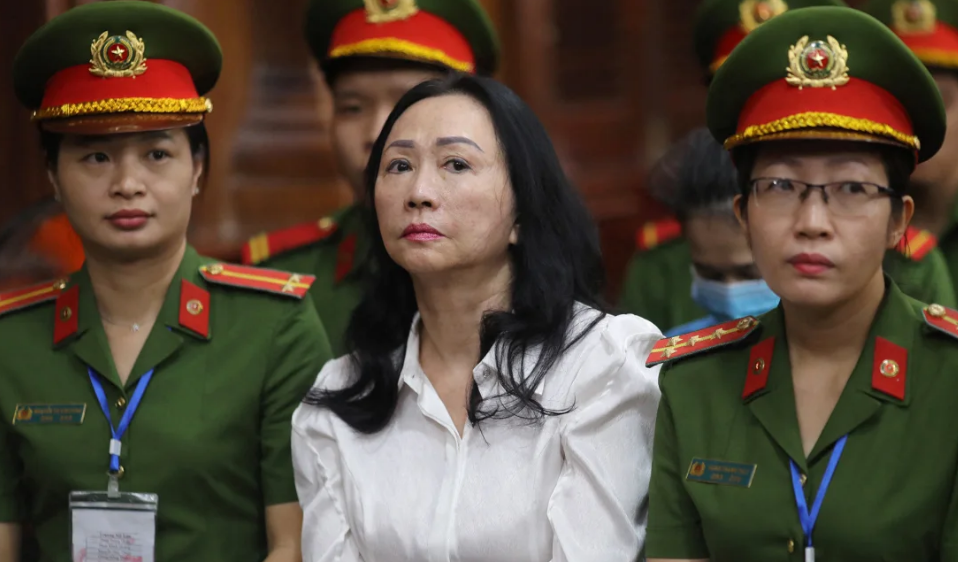
State media reported that real estate tycoon Truong My Lan was sentenced to death by a Vietnamese court on Thursday for her involvement in a massive financial fraud case worth 304 trillion dong ($12.46 billion), marking the largest such case in the country’s history.
Lan, the chairwoman of Van Thinh Phat Holdings Group, was convicted of embezzlement, bribery, and violations of banking regulations following a trial that commenced on March 5 and concluded earlier than anticipated in Ho Chi Minh City, the country’s business hub.
The swift trial reflects the government’s ongoing campaign against corruption, a pledge championed by Communist Party leader Nguyen Phu Trong.
Despite maintaining her innocence on the embezzlement and bribery charges, Lan was sentenced to death for the embezzlement offense, along with 20 years for each of the bribery and banking regulation violation charges, according to her lawyer Nguyen Huy Thiep.
Lan’s family expressed determination to continue their fight, with a family member telling Reuters anonymously before the verdict that Lan planned to appeal the sentence.
While Vietnam typically reserves the death penalty for violent crimes, it also applies it to economic offenses. Human rights organizations have criticized the country for its high number of executions, primarily conducted via lethal injection.
The case involved a total of 84 defendants, with sentences ranging from probation to life imprisonment. Lan’s husband, Eric Chu, a Hong Kong businessman, received a nine-year jail term, while her niece was sentenced to 17 years behind bars.
From perfumes to high finance
Transitioning from the fragrance industry to the world of high finance, Lan’s journey began as a cosmetics trader in Ho Chi Minh City’s central market, where she assisted her mother, as reported by state media during her trial.
In 1992, the same year she married, Lan established her real estate firm, Van Thinh Phat, marking the inception of her entrepreneurial career, according to state media.
Alongside her associates, Lan was convicted of orchestrating a scheme that diverted over 304 trillion dong from Saigon Joint Stock Commercial Bank (SCB), a bank she effectively controlled through numerous proxies, circumventing regulations that strictly limit significant shareholding in financial institutions, investigators revealed.
Between early 2018 and October 2022, when SCB required state intervention due to a deposit run triggered by Lan’s arrest, she allegedly misappropriated substantial sums by orchestrating illicit loans to shell companies, according to investigators.
“The defendant’s actions not only infringed upon the property rights of individuals and organizations but also cast doubt on SCB’s integrity, undermining public confidence in the leadership of the Party and State,” stated the jury, as cited by state newspaper VnExpress.
SCB, currently under central bank support, faces intricate restructuring efforts aimed at clarifying the legal status of numerous assets pledged as collateral for loans and bonds issued by VTP, with the bonds alone valued at $1.2 billion. While some assets are upscale properties, many remain unfinished projects.
Previously influential in Vietnam’s financial landscape, Lan played a pivotal role in an earlier bailout of SCB over a decade ago before her involvement in the bank’s subsequent crisis.
She was found guilty of bribing officials, including paying $5.2 million to a senior central bank inspector, Do Thi Nhan, who received a life sentence.
Vietnam’s anti-corruption campaign, dubbed “Blazing Furnace,” has led to the prosecution or dismissal of numerous senior state officials and prominent business figures. Corruption pervades to such an extent that in certain provinces, individuals report paying bribes for basic medical services in public hospitals, according to a recent survey by the U.N. Development Program and other organizations.
